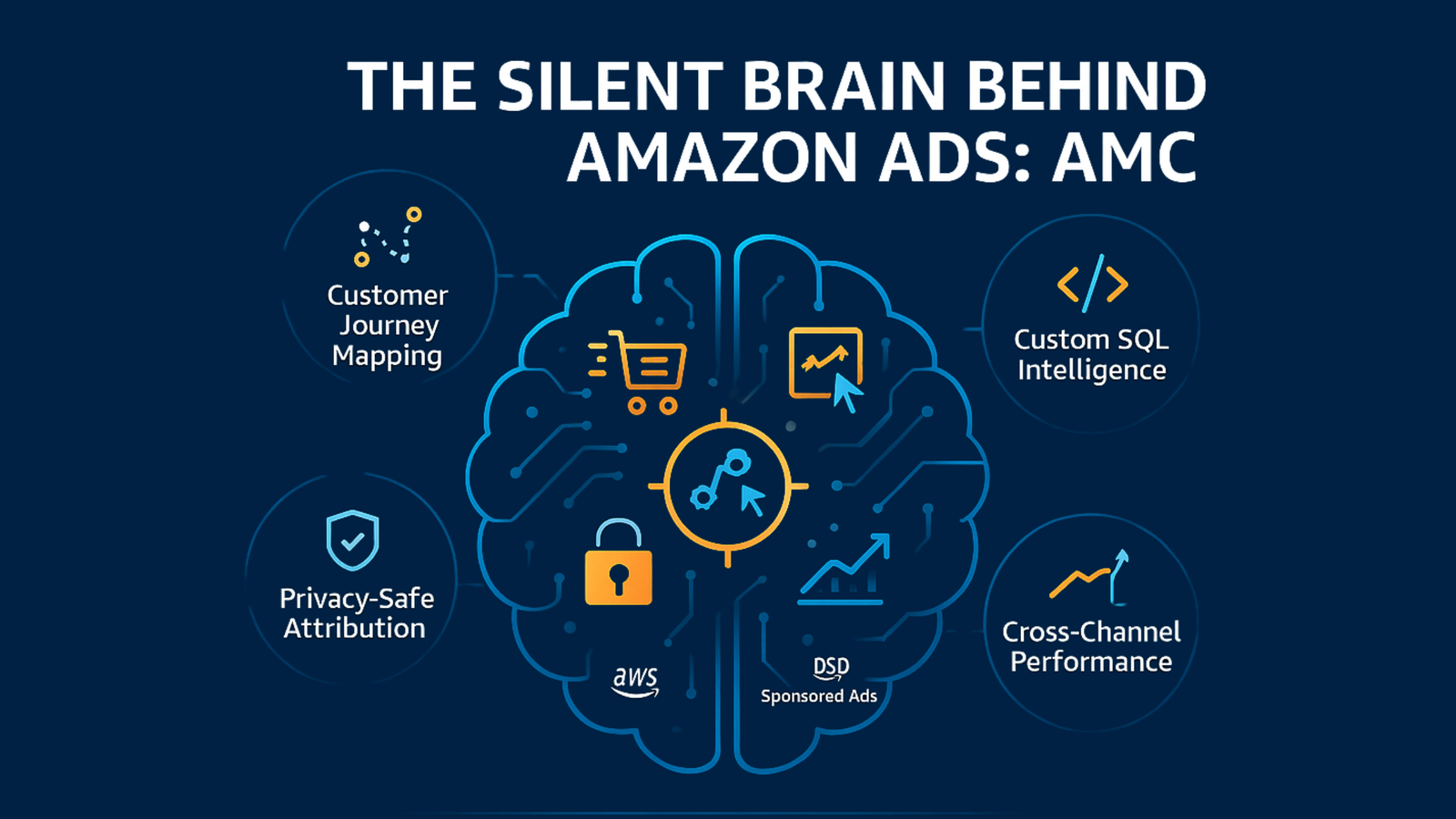As an advertiser, understanding how to categorize keywords effectively can significantly impact the success of your Amazon paid search keyword campaigns. Keyword categorization enables you to organize your keywords into logical groups, making it easier to manage, analyze, and optimize your advertising efforts.
In this article, we will explore the essential steps to categorize keywords for your paid search keyword campaigns, ensuring your ads reach the right audience and achieve the desired results.
So, what are Amazon Paid Search Keyword Campaigns?
Paid Search keyword campaigns are a type of online advertising offered by Amazon. Here, advertisers bid on specific keywords relevant to their products or services, and when users search for those keywords, the ads appear prominently on the search results page. These campaigns can significantly increase product visibility and drive potential customers to your listings.
Why is Keyword Categorization Important?
Boosting your ad campaigns through strategic keyword categorization is a crucial tactic that not only organizes your paid search keyword efforts but also significantly enhances your ad rank and relevance. By sorting keywords based on key parameters like product categories, user intent, or the stage of the buyer’s journey, your ads are displayed with precision to the most appropriate audience exactly when they’re most receptive.

This strategic categorization is pivotal in advancing your ad rank because search engines and advertising platforms factor in the relevance of your ads to the user’s search inquiry. With well-organized keywords, your ads are more likely to align with the user’s intent, resulting in increased click-through rates and engagement. This, in return, positively influences your ad rank, as search engines and platforms reward ads that cater to users’ requirements.
Categorization Of Keywords
Keywords can primarily be divided into five main categories: Core, Generic, Brand, Competition & Occasion Specific.

Core Keywords
Core keywords are specific terms directly related to the product or service you are offering. They represent the primary focus of your campaign and are usually the most important in driving relevant traffic to your Amazon listing. These keywords typically have a high conversion rate since they directly match what customers are searching for.
Example: If you are selling Streax hair care products on Amazon, some core keywords could be “Hair Color for women,” “Women’s Hair Serum,”.
Core keywords can be further divided into two types:
- Ingredient/Product-specific keywords: These keywords focus on highlighting specific ingredients or product attributes that are likely to be sought after by consumers. They aim to target customers looking for products with particular features or benefits. Examples include “Hair Color with Argan Oil,” “Hair Serum for Frizzy Hair,” or “Hair Shampoo with Keratin.”
- Claim-specific keywords: These keywords emphasize specific claims or promises made by the product. They are used to showcase unique selling points and differentiate the product from competitors. Examples include Hair Color for Long-Lasting Shine,” “Hair Serum for Strengthening Hair,” or “Hair Shampoo for Volumizing.
Generic Keywords
Generic keywords are broader terms that describe your product or service but are not as specific as core keywords. They may have a higher search volume but can also attract less targeted traffic compared to core keywords. These keywords are essential for reaching a wider audience and increasing visibility.
Example: Continuing with our example, some generic keywords could be “hair shampoo”,”hair color”, “hair Serum”.
Brand Keywords
Brand keywords include terms related to your own brand name, product names, or variations of your brand. These keywords are crucial for defending your brand and ensuring that your products appear in search results when customers specifically search for your brand.
Example: For our brand Streax, some brand keywords could be “Streax hair shampoo”, “Streax hair color”, “Streax hair serum”.
Competition Keywords
Competition keywords are terms related to your competitors’ brands or products. Targeting these keywords can be a strategic move to attract potential customers who are considering or looking for alternatives to your competitors’ offerings.
Example: For our brand “Streax,” competition keywords might include “L’Oreal Hair Shampoo,” “L’Oreal Hair color,” or “L’Oreal Hair Serum”.
Occasion Specific Keywords
These are specific words or phrases used in amazon advertising campaigns to target customers during particular events, celebrations, or seasons. They are designed to capitalize on increased consumer interest and demand associated with each occasion.
These can be further divided into two parts:
- Sale-related keywords: These keywords are focused on promoting special sales events and discount periods. They aim to attract customers looking for deals and savings during specific occasions. For example – “Discounted Streax Hair Color”, “Sale on Streax Hair Styling Gel”.
- Festive-related keywords: These keywords are associated with specific cultural or religious festivals and celebrations. They cater to customers seeking products related to those festivities and often focus on gift-giving traditions. For example- “Streax Hair Color gift set”, “”Festive offers on Streax hair care”.
How to find these keywords?
There are multiple options from where we can take keyword related data of amazon shoppers. Some of the most prominent include:
- Brand Analytics Top Search Term Report
- Product Oppurtunity Explorer
- Amazon PI data
- Search term report
- Amazon Search Bar
- External Keyword Research Tool
Brand Analytics Top Search Terms Report
Log in to your Seller Central account and navigate to the Brand Analytics section to search keywords using Amazon Brand Analytics. Navigate to the “Top Search Terms” report, which provides useful information about Amazon consumer search behavior. Analyze the data to find relevant keywords that customers are using to find similar products to yours. To evaluate keyword performance, consider search volumes, click-through rates, and conversion rates.

Amazon Product Opportunity Explorer
The Product Opportunity Explorer is an innovative tool designed to aid sellers in uncovering fresh product opportunities. It expertly identifies sectors with high consumer demand yet relatively low competition. Although it may not directly correlate with keyword research, it serves as an indirect aid by revealing untapped product niches, potentially leading to the discovery of new keywords.

Amazon PI data
The Search Performance report serves as a valuable tool in understanding your brand’s performance on Amazon Search. Through this report, you can identify top-ranking keywords associated with your products. Leveraging these keywords in your Amazon ad campaigns can significantly enhance your products’ discoverability, especially on highly searched keywords.
Amazon Pi –> Awareness –> Search performance

Amazon Search Term Report
The Search Term Report provides insights into the search terms customers are using to find and buy your products. It can be downloaded through your AMS panel. The report contains valuable information about the keywords that customers used to trigger your ads or find your products. You can analyze this data to discover high-performing keywords and identify new keyword opportunities for your listings.
AMS Panel –> Measurment & Reporting–> Sponsored Ad Reports

Amazon Search Bar
You can also start by inputting terms related to your product in the Amazon search bar, and Amazon’s intuitive auto-complete feature will instantly generate a list of recommended keywords. These suggestions, built on popular search queries by other users, offer invaluable insight into what customers are actively seeking on the platform.

External Keyword Research Tool
Numerous third-party keyword research tools are available online, ready to offer insights into the most popular search terms on Amazon. Among the most sought-after are Helium 10, Jungle Scout, and MerchantWords.

To sum it up, a well-structured keyword strategy serves as the bedrock for a triumphant Amazon Paid Search Keyword campaign. It guarantees that ads are displayed to the ideal customers exactly when they need them. This ultimately enhances visibility, boosts sales, and elevates the return on advertising investment.




